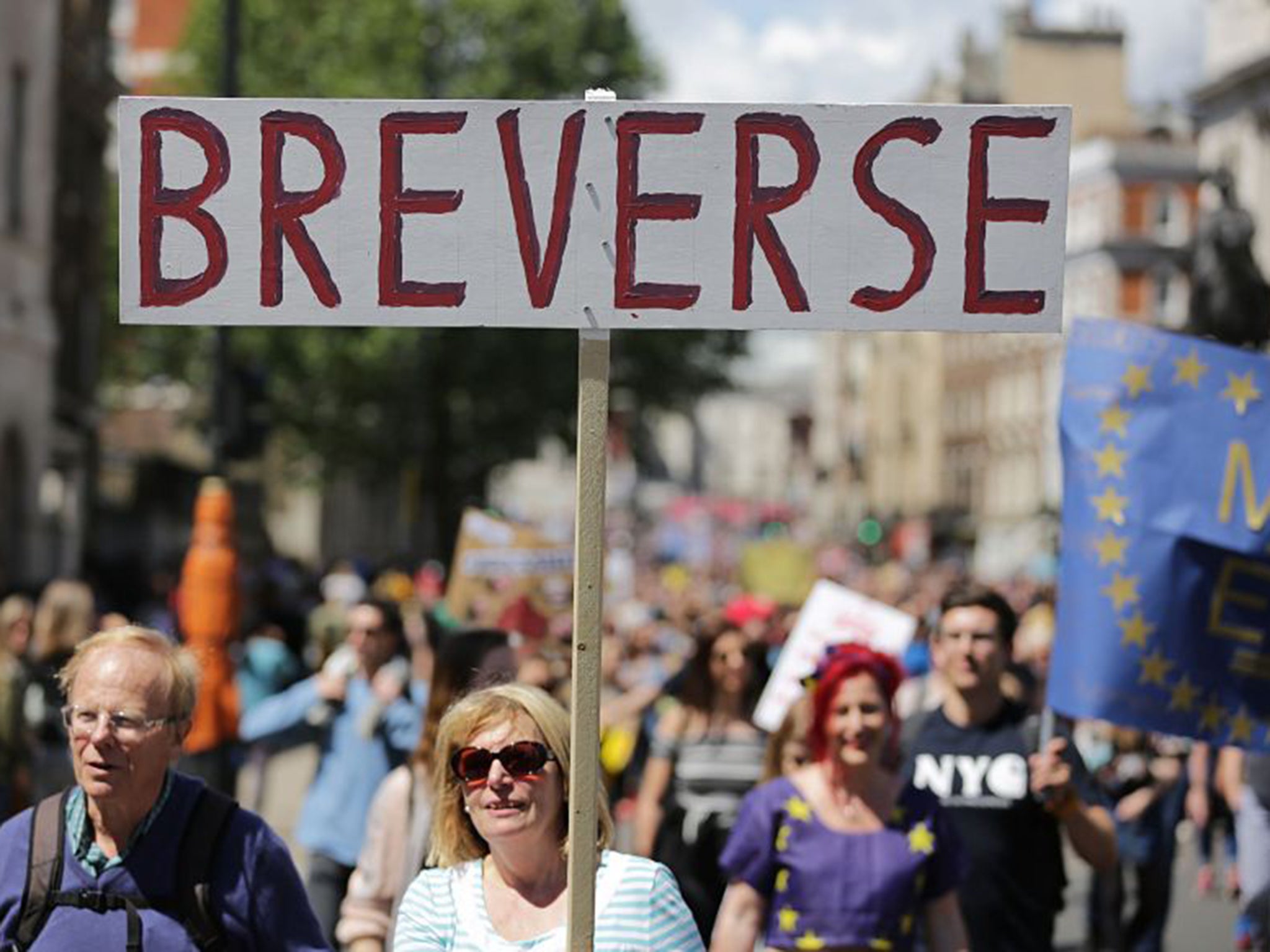To successfully negotiate Brexit, a second referendum must be on the cards
The way to give strength to the UK’s negotiating team is to float the possibility that we might change our mind

Brexit is the biggest diplomatic event of our lifetime. As such, it shouldn’t be entered into lightly or halfheartedly as it is going to radically change many things.
Unfortunately, that is exactly what we have done. Rightly or wrongly, we are currently set on a course of action with no agreement even on the destination, let alone how to get there. That presents many challenges and this one issue is going to eat up the resources and time of the Government. So what’s the next step?
No one knows what this is. And we really need to set out what we want before we start trying to negotiate to achieve that. It’s up to all those who voted Leave to agree what they want and what they are prepared to accept – which are unlikely to be the same thing! For example, do we want to stay in the Single Market, do we want a complete end of all freedom of movement, do we want to be able to overrule European laws, etc? This has to be thought out as you don’t go into negotiations just hoping for the best.
Once we have agreed objectives, we need to start negotiations. Virtually all the negotiating power is with the EU. There are two years to conduct a leave agreement and, if none is agreed, the leaving state is just thrown out. Trade negotiations are separate and the EU has no need to hurry – whereas a leaving state will have no agreement of its own and will be desperate to re-establish its trading position. None of this should be a surprise, though, when you bear in mind that the man who wrote the article wrote it as a deterrent that was never supposed to be used. All of which puts the UK in a difficult position to say the least.
Being able to walk away from the negotiating table at any time is therefore absolutely key. If the EU knows we have to accept something, what leverage will the UK have? Yes, we are still an important market for European goods but – without all the trade agreements – we could be left in the lurch as we can’t sign or even informally agree anything with others (or the EU) until we have left. So it would be a colossal leap in the dark – and we could easily get economically shafted as all other states in the world will be using this as an opportunity to advance the interests of their own industries and economies. So we must be able to keep the options open.
The way to give strength to the UK’s negotiating team is to float the possibility that we might change our mind. That way, we can threaten to walk away from the negotiating table and back to the status quo if we are getting a rough deal. In fact, a strict reading of Article 50 allows for us to change our mind as having to use Article 49 only applies “If a State which has withdrawn from the Union asks to rejoin…” and that clearly doesn’t apply until you have left. That was certainly the conclusion of a study into the leaving process conducted by the House of Lords; but we should put it beyond doubt and make it clear to the EU that we reserve the right to walk away from the negotiations. And there is a way of doing that.
To achieve this, the UK gives the formal notification via an Act of Parliament (it’s dubious that it can be done in any other way as the current legal case is arguing). In that act, we then state that the terms of leaving need to be approved by Parliament or Referendum, otherwise the notification is incomplete and the UK stays. With that in place, the UK can then go into the negotiations knowing it is not going to be screwed over. This is because Article 50 says “Any Member State may decide to withdraw from the Union in accordance with its own constitutional requirements.” Well, the UK constitution is basically a collection of Acts of Parliament. If one of these says we need to give explicit consent to the specific terms being offered, then that becomes our constitution.
So start negotiating Mr Davis– but do it with all our options open. Who knows what deal we can get; but by using a conditional notification we would get the maximum amount of control possible over the process. This could then be enshrined in a promise to hold a second referendum because none of us know what deal can be achieved. So do the deal – and then let us have the final say when we can actually see what both options truly mean. Then, whatever happens, the people really will have spoken.
An extended version of this article appeared in the blog How Should You Vote?

Join our commenting forum
Join thought-provoking conversations, follow other Independent readers and see their replies